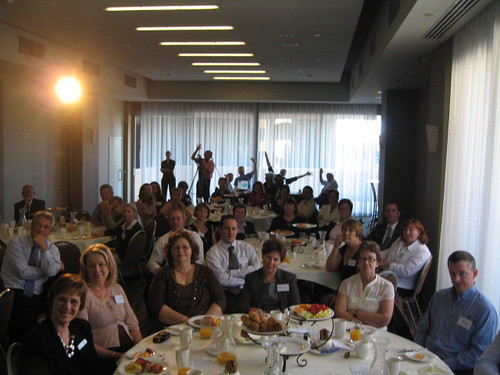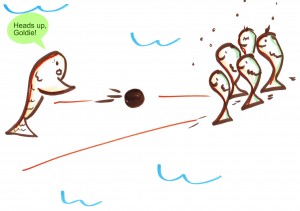After months of trying to get our schedules aligned, I had the chance to be a guest at the IBM “CommunityBuilders” monthly call. These are hour long sessions where people who facilitate/manage/care about communities within and across IBM talk about things together.
I am a big fan of Luis Suarez, one of the hosts of these gatherings, so it was easy to say yes. Plus I know some of the IBM community builders -some over many many years, so this was a great opportunity to think together. It was the good folks at IBM who helped me actually see my own practice and it’s value in the late 90’s and I’m grateful.
Luis has his reflections up on his blog, so I thought it would be worth pointing to them and reflecting a bit myself. CommunityBuilders – Online Community Still Crazy After Years with Nancy White. (Luis, do we have a chat transcript too? There were lots of great comments and questions!)
If you have been involved with virtual communities and online facilitation, I bet it’s almost impossible not having come across the absolutely fabulous work on facilitating online communities Nancy has done, and shared across!, over the course of the years. Her work around Online Community Toolkit is probably one of those essential resources for any community manager, leader, facilitator out there who may want to get things started with their own online communities, or take existing ones into the next level of interactions. Her book, co-authored with Etienne Wengerand John Smith, on Digital Habitats – Stewarding Technology for Communities is probably what I would consider a bible on online facilitation, community building and community tooling…
It was an hour long session, where Nancy covered some of the basics behind the concept of Community (And how not everything out there, other groupings, may necessarily be a community), how both technology and community are walking through a rather thin line influencing one another, for the better, in defining how community members connect with one another and how those connections influence the path technology is following; and from there onwards she dived into an engaging conversation with the rest of the audience through a rather lively Q&A session covering a whole bunch of topics going from examples of effective community tooling, communicating efficiently with your community members, measuring the value of communities towards their stakeholders, biggest new challenges for online communities today, promoting and engaging activities for communities, etc. etc.
Thus I guess I better stop here, for now, and cut right to the chase, sharing with you folks the link to the materials, so that you can have a look right away and dive into them. The link to the video recording can be found over at “CommunityBuilders Monthly Call – Online Community Still Crazy After Years with Nancy White” (30 MB download) and you can download a copy of the slides over at Slideshare or start checking the deck through the embedded code below:
She probably doesn’t know this, but one of the reasons why I am so passionate about collaboration and online communities in general is due to her own contagious passion, expertise and know-how that she continues to share over the course of the years!
When I started getting interested in online communities there weren’t very many practitioners to talk with. Today it is a rich ecosystem. The evidence is everywhere. The practices have blossomed and diversified. We have gone beyond older notions of “community” and layered on “networks.” Look at the Community Managers Rountable (see their “State of…” report here), Gautam Ghosh’s guest post on Luis’ blog. The proof that this is a maturing field are everywhere – and the fact that no one of us can keep up with it all. I keep thinking I need to redesign my online facilitation workshop (which I have not offered for several years now – shame on me). But the territory is almost too rich. What a delight.
We didn’t get to the slides at the end of the deck – the “looking forward” stuff. I’d love to know what you think are the learnings agendas still in front of us for working in and with communities and networks. Hit the “comment” button and let me know!


